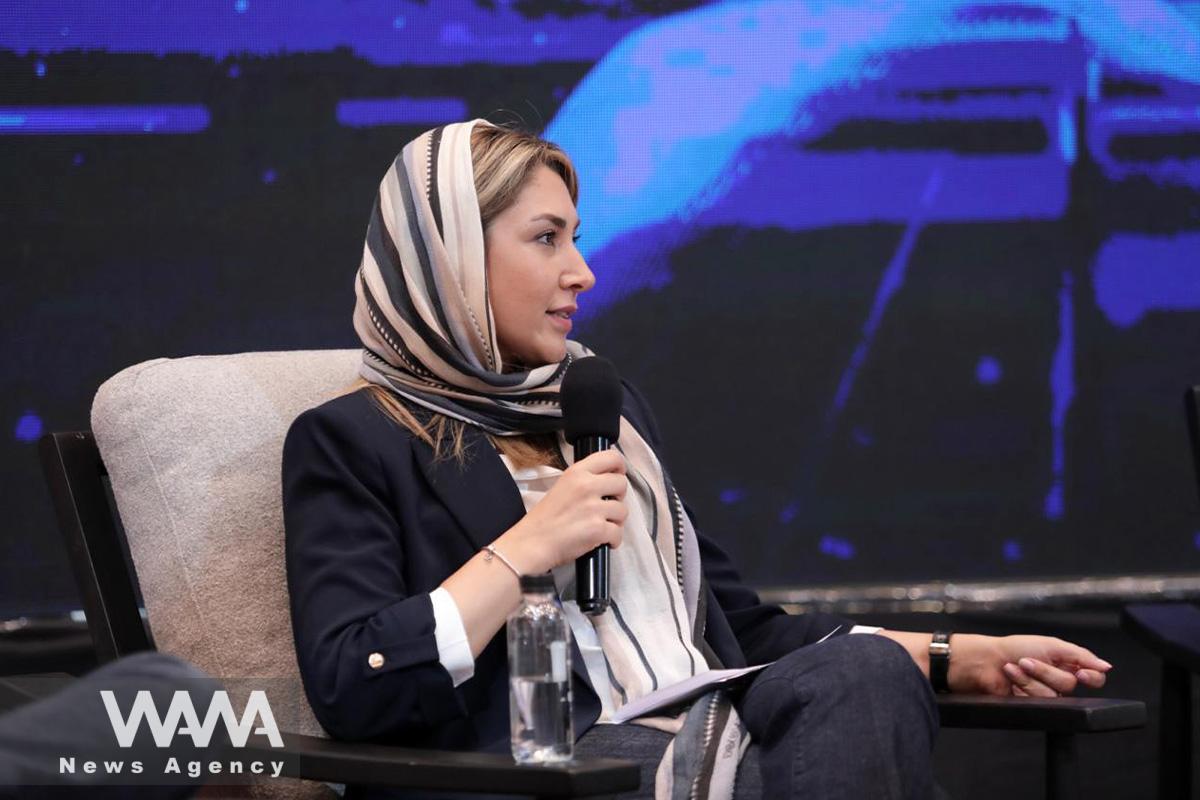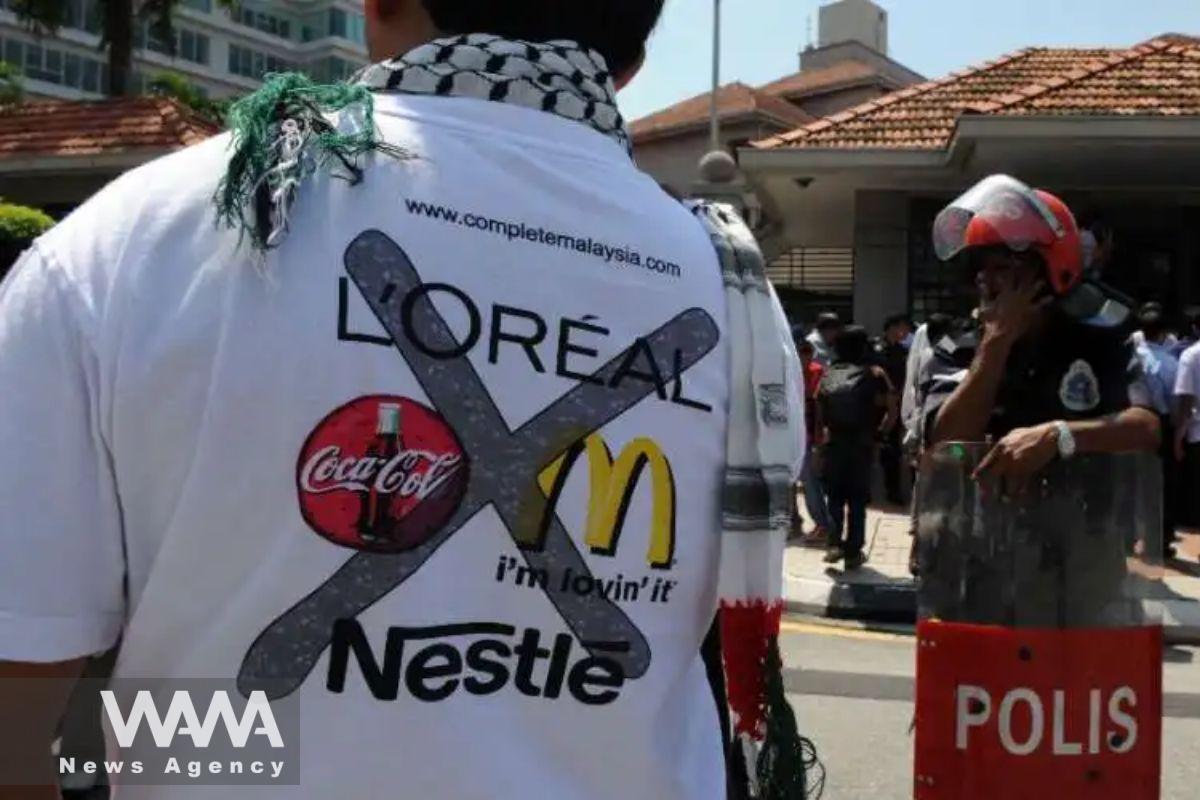Nestle Iran CEO’s Remarks Reignite Controversy Over Israel Ties
WANA (Feb 16) – Since yesterday, a direct admission by Elnaz Sakhaeian, CEO of Nestle Iran, regarding the company’s dependence on its parent company has stirred controversy. Her speech at an educational panel—marked by an excessive use of English words—drew criticism from some users. However, the most significant aspect of her remarks was the acknowledgment of disregarding the policy of boycotting Israeli-made products or companies affiliated with Israel.
Consequences of the Nestlé Iran CEO’s Confession
The CEO’s statement about Nestlé Iran’s direct ties to Nestlé International has reignited concerns about the activities of multinational brands in Iran. There is growing apprehension that a portion of the revenue and profits generated in the Iranian market could be transferred to the parent company, ultimately contributing to Israel’s economy.
This issue, coupled with Nestlé’s history of support for Tel Aviv, has once again brought discussions about boycotting the brand to the forefront among Iranian consumers and regulatory bodies. Additionally, past incidents, such as the explosion of pagers in Lebanon and the broader concerns over trust in companies linked to Israel, have further fueled these concerns.

Elnaz Sakhaeian, Country Manager at Nestle Iran. Social media / WANA News Agency
Reactions of Media and Social Media Users
Food security and preventing the mischief of enemies, particularly the Israelis, regarding the physical health of Iranians have been a concern for Iranian policymakers. The painful experience of contaminated blood transfusions from France to Iran, which led to the spread of AIDS, is still fresh in people’s memories. Iranian families continue to mourn loved ones who lost their lives due to the injection of tainted blood.
Iranian users and media outlets have written about the tens of millions of dollars in profit this company makes through trade with Iran and whether these profits will end up in Israeli pockets. They question whether the Israelis will use the profits they gain from the Iranian market to kill more Palestinian women and children, and so on.
The view of Iranian media is that under no circumstances should a company like Nestlé, whose products are on the global sanctions and boycott lists, be allowed to operate in Iran.
Users believe that the boycott of Israeli goods should be pursued more vigorously and that the intentional or unintentional cooperation of some Iranian traders with companies linked to the Israeli regime will weaken the “Resistance Front” and strengthen the Israeli killing machine.
Nestlé’s Presence in Iran and Its Connection to Israel
Nestlé entered the Iranian market in 2002, expanding its operations by offering baby food products, infant formula, instant coffee powder, and biscuits. Even during sanctions, the company remained in Iran. However, a key point of discussion regarding Nestlé has always been its economic ties with Israel. The recent Gaza war once again highlighted this connection, drawing attention to the company’s investments in Israel.

Iran’s Nestle Products. Social media/ WANA News Agency
Nestlé owns 50.1% of the Israeli company Osem, one of Israel’s largest food manufacturers. Reports indicate that over the past two decades, Nestlé has invested billions of dollars in Israel. The Israeli government considers Nestlé one of the brands that support its economy.
Nestlé’s Support for Israel in the Gaza War
With the escalation of conflicts in Gaza, reports have emerged indicating that some multinational companies have supported Israel in various ways. Among them, Nestlé has been accused of supplying food and logistical aid to Israeli forces. Some sources claim that despite the expansion of public boycotts against brands supporting Israel, the company has continued its economic activities in the country.
Boycotting Brands Supporting Israel
In recent years, the policy of boycotting goods linked to Israel has become a central aspect of economic resistance, particularly among Islamic countries and especially in Iran. Brands such as McDonald’s, Coca-Cola, Starbucks, and Nestlé have faced public and governmental boycotts due to their direct or indirect support of Israel.

Countries like Malaysia, Indonesia, the Maldives, Pakistan, Brunei, Bangladesh, Afghanistan, Yemen, Syria, Oman, Lebanon, Bahrain, Kuwait, Iran, and Iraq have officially refrained from cooperating with or purchasing from companies that support the Israeli regime.
Surveys also show that in countries like Saudi Arabia, the United Arab Emirates, and Indonesia, the majority of people support boycotting brands that support Israel. For example, 71% of Saudi citizens and 57% of Emiratis believe these brands should be boycotted.
These boycotts have had significant impacts on the sales of these brands in the mentioned countries. For example, McDonald’s has experienced a noticeable decline in sales in Muslim-majority countries like Malaysia and Indonesia. In Iran, various institutions, including guilds and grassroots groups, are promoting this policy.
Nestlé, the largest food producer in the world, has been awarded the Jubilee Prize by Netanyahu (the Prime Minister of Israel) in recognition of its services to Israel. The company has invested over 200 billion tomans, approximately 2,898,551 dollars, in Israel. In return for this goodwill, it receives an annual financial aid of 24 billion tomans, equivalent to about 347,826 dollars, from the United States.
In light of recent disclosures, it seems that Iran’s business policies regarding brands associated with Israel may need to be reconsidered, and it remains to be seen what decision the responsible authorities will make in this regard.

An Iranian man buys in a supermarket in Tehran, Iran, May 17, 2022. Majid Asgaripour/WANA (West Asia News Agency)












